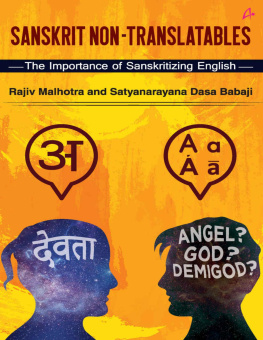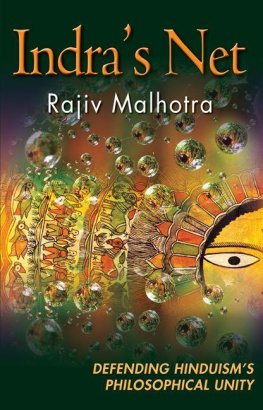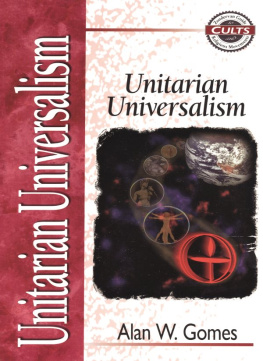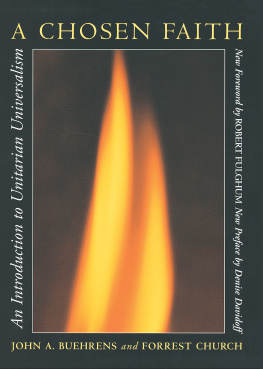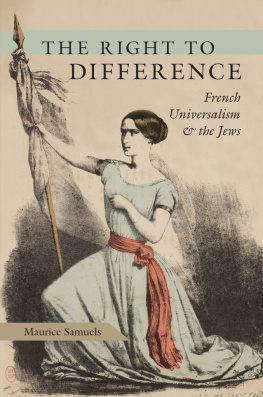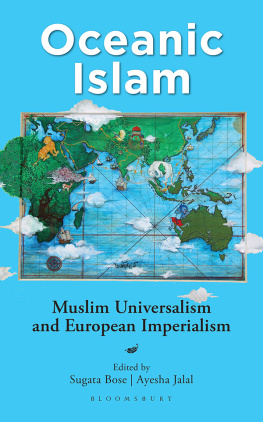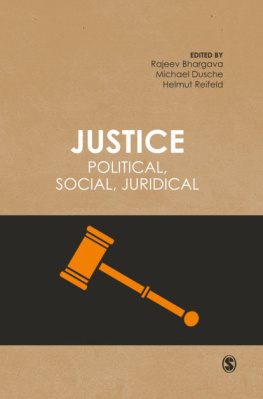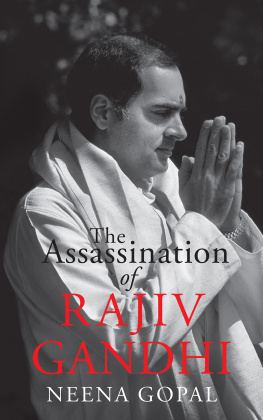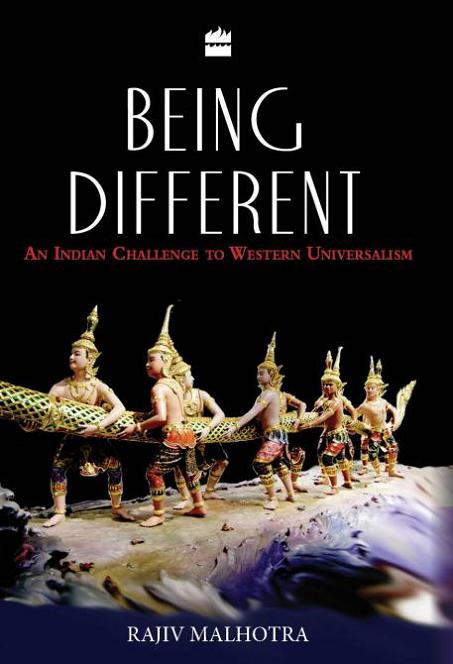
Being Different
PRAISE FOR THE BOOK
'Being different is a provocative and important book for two distinct reasons. First, the book is one of the few attempts by an Indian intellectual to challenge seriously the assumptions and presuppositions of the field of India and/or South Asian studies tout ensemble , including not only the work of European and American scholarship but as well the neocolonialist, postmodernist and subaltern ressentiment so typical of contemporary Indian intellectuals. Second, and perhaps of greater significance, is Malhotra's attempt to analyse the meaning and significance of Indic culture from within the indigenous presuppositions of India's own intellectual traditions, including the ontological claims of Indic cosmology, the epistemology of yogic experience, the unique Indic appreciation for complexity, and the nuances of Sanskritic expression. The book will be controversial on many different levels and will undoubtedly elicit rigorous critical response' GERALD JAMES LARSON, Rabindranath Tagore Professor Emeritus, Indiana University, Bloomington, and Professor Emeritus, Religious Studies, University of California, Santa Barbara
'Malhotra writes with passion from within an avowedly dharmic stance, undermining the attempts to domesticate and expropriate Indian traditions in a process of inter-religious dialogue that is ultimately based on a Western cosmological framework. This book is essential reading for Western scholars. It espouses an "audacity of difference" that defends the distinctiveness of Indian thought and reveals the chauvinism of much Western thought in its encounters with other cultures' DON WIEBE, Professor of Divinity, Trinity College in the University of Toronto
'This book is a "must read" for those who care about India and its future' MAKARAND R. PARANJAPE, Professor of English, Jawaharlal Nehru University, Delhi
'Honest, provocative and wide-ranging, this book gives us (westerners) a rare opportunity to see ourselves through the lens of another worldview. It cuts to the heart of the problems created by Christian beliefs about unique historical revelation, and by the West's consistent investment in a set of linear historical narratives purporting to offer universal salvation but fuelled by particular western needs and anxieties. Informed by postmodernism, but moving beyond it, the book levels the playing field for a genuine encounter between East and West and raises issues that any serious revision of Christian theology must address' CLEO KEARNS, University of Massachusetts, Dartmouth, and Infinity Foundation
'Rajiv Malhotra's insistence on preserving difference with mutual respect not with mere "tolerance" is even more pertinent today because the notion of a single universalism is being propounded. There can be no single universalism, even if it assimilates or, in the author's words, "digests", elements from other civilizations' KAPILA VATSYAYAN, Independent scholar and Member of Rajya Sabha
'Many Indian spiritual leaders, lacking a profound knowledge of their own culture, and feeling inferior to the West, try to respond to the Western challenge by showing how Indian and Western religions are the same. Rajiv Malhotra's work is a kind of yajna that reverses the gaze upon the West through the lens of Indian categories. This process is traditionally called purva paksha , and in Rajiv's work it is given a new mission. Rajiv has devised the very interesting metaphor of digestion to explain how the dharmic traditions are being disassembled into parts for digestion into the belly of Western culture. Being Different shows how the West's history-centrism drives it into claims of exclusiveness; this causes anxiety over differences which it seeks to resolve through projects of digestion in order to obliterate whatever seems challenging' SATYA NARAYAN DAS, Founder of Jiva Institute of Vedic Studies, Vrindavan
'What I found particularly informative and original in Being Different is the discussion on the positive role of chaos in the Indic world as compared to the West's abhorrence of it. The book explains Hegel's deep-rooted fear of chaos and uncertainty. He privileged order in Western aesthetics, ethics, religions, society, and politics and classified Oriental traditions into "pantheism", "polytheism", and "monotheism" as "world historical categories". Hegel developed a system of equivalences to assign relative meaning and value to each culture, thereby defining the contours of the "West" and the "Rest.' These became the conceptual tools for epistemic subjugation of the non-West in the name of order. The dharmic worldview is more relaxed about chaos, seeing it as a creative catalyst built into the cosmos to balance out order that could otherwise become stultifying' SHRINIVAS TILAK, Independent scholar, Montreal
'With stunning honesty, Being Different alerts the reader to the grave dangers of a difference-negating "sameness" that is marketed worldwide by secular and religious streams in Western culture. This is a very important and highly accessible book in the discourse on the interaction between civilizations' RITA SHERMA, Executive Director, Confluence School of Faith Studies; co-editorHermeneutics and Hindu Thought: Towards a Fusion of Horizons
'Being Different is a highly successful attempt in exploring the major differences between Indian and Western worldviews, metaphysics, cosmologies and philosophies which have not previously been adequately appreciated by scholars and spiritual seekers' SAMPADANANDA MISHRA, Director, Sri Aurobindo Foundation for Indian Culture, Pondicherry
BEING DIFFERENT
An Indian Challenge to Western Universalism
Rajiv Malhotra

First published in India in 2011 by
HarperCollins Publishers India
a joint venture with
The India Today Group
Copyright Infinity Foundation 2011
2 4 6 8 10 9 7 5 3 1
Rajiv Malhotra asserts the moral right to be identified as the author of this work.
The views and opinions expressed in this book are the author's own and the facts are as reported by him and the publishers are in no way liable for the same.
All rights reserved. No part of this publication may be reproduced, stored in a retrieval system, or transmitted, in any form or by any means, electronic, mechanical, photocopying, recording or otherwise, without the prior permission of the publishers.
HarperCollinsPublishers
A-53, Sector 57, Noida 201301, India 77-85 Fulham Palace Road, London W6 8JB, United Kingdom Hazelton Lanes, 55 Avenue Road, Suite 2900, Toronto, Ontario M5R 3L2 and 1995 Markham Road, Scarborough, Ontario M1B 5M8, Canada 25 Ryde Road, Pymble, Sydney, NSW 2073, Australia 31 View Road, Glenfield, Auckland 10, New Zealand 10 East 53rd Street, New York NY 10022, USA
Typeset in 11/3.5 Adobe Garamond Pro by
InoSoft Systems Noida
Printed and bound at
Thomson Press (India) Ltd.
Contents
Introduction
'I am simply using the dharmic perspective to reverse the analytical gaze which normally goes from West to East and unconsciously privileges the former. This reversal evaluates Western problems in a unique way, sheds light on some of its blind spots, and shows how dharmic cultures can help alleviate and resolve some of the problems facing the world today.
Next page

